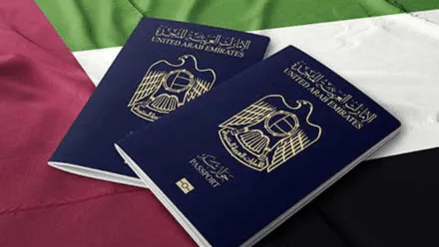UAE Suspends Tourist and Work Visa : The United Arab Emirates (UAE) has recently announced a significant immigration policy change, temporarily suspending new tourist and work visa applications for citizens of nine countries. This decision, enacted through an internal circular by the General Directorate of Residency and Foreigners Affairs (GDRFA), has sparked widespread discussion due to its potential economic, diplomatic, and humanitarian implications. Below, we dive into the details of this policy, its reasons, impacts, and what affected individuals should do next.
Which Countries Are Affected?
The suspension applies to nationals from the following nine countries, spanning Africa and Asia/Middle East:
- Uganda
- Sudan
- Somalia
- Cameroon
- Libya
- Afghanistan
- Yemen
- Lebanon
- Bangladesh

Effective immediately, citizens of these nations cannot apply for new tourist visas or work permits until the ban is lifted, which is expected to extend into 2026. However, those already holding valid UAE visas—whether tourist, work, or residency permits—are unaffected and can continue to enter, reside, or work in the UAE without disruption.
Why Has the UAE Imposed This Ban?
UAE Suspends Tourist and Work Visa : While the UAE government has not released an official public statement detailing the reasons, insights from regional analysts and immigration sources point to a combination of factors:
- Security Concerns: The UAE has prioritized national security, citing risks such as terrorism, political instability, or inadequate vetting processes in some of the listed countries. This aligns with the UAE’s ongoing efforts to strengthen border control and immigration protocols.
- Diplomatic Relations: Strained ties with certain nations may have influenced the decision. The ban could serve as a diplomatic signal or leverage in ongoing bilateral discussions.
- Health and Safety Protocols: Post-COVID-19 measures continue to shape immigration policies. Concerns about vaccination compliance or disease transmission from regions with limited healthcare infrastructure may play a role.
- Migration and Labor Reforms: The UAE is modernizing its visa and labor systems, introducing digital verification tools and stricter labor market regulations. The suspension may be part of efforts to manage workforce demographics and reduce reliance on specific nationalities.
This isn’t the first time the UAE has imposed visa restrictions. Similar temporary bans occurred in 2020, but this broader policy reflects heightened scrutiny amid global uncertainties.

UAE Suspends Tourist and Work Visa : What Are the Impacts?
The visa suspension carries far-reaching consequences across multiple sectors:
1. Economic Effects
- Labor Market: Countries like Bangladesh and Sudan rely heavily on remittances from workers in the UAE’s construction, retail, and domestic service sectors. The ban could disrupt these income flows, affecting families and local economies.
- Businesses: UAE employers, particularly in industries dependent on low- to mid-skill labor, may face recruitment challenges, potentially leading to labor shortages or higher operational costs.
2. Tourism and Travel
- The suspension will reduce visitor numbers from these nine countries, impacting the UAE’s vibrant tourism sector, especially in hubs like Dubai and Abu Dhabi. Hotels, restaurants, and tour operators may see a dip in revenue.
3. Humanitarian Concerns
- For nationals from conflict-affected countries like Yemen, Libya, and Afghanistan, the ban adds barriers for families, students, or those seeking medical treatment in the UAE. This could exacerbate existing hardships in these regions.
4. Diplomatic Ramifications
- The policy may strain UAE relations with the affected countries. While no immediate retaliatory measures have been reported, governments may respond with reciprocal restrictions or diplomatic protests.

What Should Affected Individuals Do?
UAE Suspends Tourist and Work Visa : If you’re a citizen of one of the nine listed countries, here’s how to navigate this situation:
- Check Your Current Visa Status: If you hold a valid UAE visa (tourist, work, or residency), you are unaffected by the ban. Confirm your visa’s validity through the GDRFA portal (gdrfad.gov.ae) or the UAE’s online visa system (icp.gov.ae).
- Monitor Official Updates: The suspension is temporary, with no fixed end date. Regularly check official UAE government websites or contact your local UAE embassy/consulate for updates on when applications may resume.
- Explore Alternatives: If you planned to travel or work in the UAE, consider other Gulf Cooperation Council (GCC) countries with more open visa policies, such as Qatar or Oman, though their requirements may differ.
- Consult Authorized Agents: For future applications, work with certified visa agents or directly through UAE’s online platforms to ensure compliance with updated regulations.
Also Read This : iPhone 16 Pro Max Price Guide : What to Expect in 2025
UAE Suspends Tourist and Work Visa : The UAE’s visa suspension underscores its strategic approach to balancing economic growth, security, and global relations. While the policy aims to address pressing concerns, it also highlights the challenges of navigating immigration in a rapidly changing world. For affected individuals and businesses, staying informed and adaptable will be key until the ban is lifted.
UAE Suspends Tourist and Work Visa : For the latest updates, visit the UAE’s official immigration websites or follow trusted news sources. If you’re directly impacted, reach out to the GDRFA or your nearest UAE embassy for personalized guidance.




